This article was medically reviewed by Luba Lee, FNP-BC, MS. Luba Lee, FNP-BC is a Board-Certified Family Nurse Practitioner (FNP) and educator in Tennessee with over a decade of clinical experience. Luba has certifications in Pediatric Advanced Life Support (PALS), Emergency Medicine, Advanced Cardiac Life Support (ACLS), Team Building, and Critical Care Nursing. She received her Master of Science in Nursing (MSN) from the University of Tennessee in 2006.
wikiHow marks an article as reader-approved once it receives enough positive feedback. In this case, 82% of readers who voted found the article helpful, earning it our reader-approved status.
This article has been viewed 114,236 times.
Scabs naturally form over cuts, scrapes, and wounds while they’re healing to protect your wounds. Even though they’re important for keeping bacteria, germs, and dirt out of your wound, there are still ways to speed up the healing process so you don’t have a scar. Sometimes scabs can itch and they may appear unsightly on your skin. To heal a scab, you can apply vaseline, honey, or oil as well as food products like onion and garlic. Choose one method at a time rather than using a combination of products.
Steps
Expert Q&A
-
QuestionHow can you help a pimple scab heal faster?
 Mohiba Tareen, MDMohiba Tareen is a board certified Dermatologist and the founder of Tareen Dermatology located in Roseville, Maplewood and Faribault, Minnesota. Dr. Tareen completed medical school at the University of Michigan in Ann Arbor, where she was inducted into the prestigious Alpha Omega Alpha honor society. While a dermatology resident at Columbia University in New York City, she won the Conrad Stritzler award of the New York Dermatologic Society and was published in The New England Journal of Medicine. Dr. Tareen then completed a procedural fellowship which focused on dermatologic surgery, laser, and cosmetic dermatology.
Mohiba Tareen, MDMohiba Tareen is a board certified Dermatologist and the founder of Tareen Dermatology located in Roseville, Maplewood and Faribault, Minnesota. Dr. Tareen completed medical school at the University of Michigan in Ann Arbor, where she was inducted into the prestigious Alpha Omega Alpha honor society. While a dermatology resident at Columbia University in New York City, she won the Conrad Stritzler award of the New York Dermatologic Society and was published in The New England Journal of Medicine. Dr. Tareen then completed a procedural fellowship which focused on dermatologic surgery, laser, and cosmetic dermatology.
FAAD Board Certified Dermatologist If your skin is inflamed, you do not want to exfoliate it. That will cause more breaks in the skin, leading to more bacteria and inflammation. Benzoyl peroxide spot treatment can be helpful. Oral antibiotics or Accutane can help if it’s really bad.
If your skin is inflamed, you do not want to exfoliate it. That will cause more breaks in the skin, leading to more bacteria and inflammation. Benzoyl peroxide spot treatment can be helpful. Oral antibiotics or Accutane can help if it’s really bad. -
QuestionHow can I make a scab heal faster?
 Luba Lee, FNP-BC, MSLuba Lee, FNP-BC is a Board-Certified Family Nurse Practitioner (FNP) and educator in Tennessee with over a decade of clinical experience. Luba has certifications in Pediatric Advanced Life Support (PALS), Emergency Medicine, Advanced Cardiac Life Support (ACLS), Team Building, and Critical Care Nursing. She received her Master of Science in Nursing (MSN) from the University of Tennessee in 2006.
Luba Lee, FNP-BC, MSLuba Lee, FNP-BC is a Board-Certified Family Nurse Practitioner (FNP) and educator in Tennessee with over a decade of clinical experience. Luba has certifications in Pediatric Advanced Life Support (PALS), Emergency Medicine, Advanced Cardiac Life Support (ACLS), Team Building, and Critical Care Nursing. She received her Master of Science in Nursing (MSN) from the University of Tennessee in 2006.
Board-Certified Family Nurse Practitioner Keep the scab clean, apply petroleum jelly, and cover it up during the day. Change the dressing at least twice a day. It also helps if you eat nutritious, low glycemic index foods, stay hydrated, make smoothies with collagen, and maintain moderate physical activity to speed up the healing.
Keep the scab clean, apply petroleum jelly, and cover it up during the day. Change the dressing at least twice a day. It also helps if you eat nutritious, low glycemic index foods, stay hydrated, make smoothies with collagen, and maintain moderate physical activity to speed up the healing.
References
- ↑ http://www.newhealthadvisor.com/How-to-Heal-Scabs-Fast.html
- ↑ http://www.newhealthadvisor.com/How-to-Heal-Scabs-Fast.html
- ↑ http://www.newhealthadvisor.com/How-to-Heal-Scabs-Fast.html
- ↑ http://www.newhealthadvisor.com/How-to-Heal-Scabs-Fast.html
- ↑ http://www.newhealthadvisor.com/How-to-Heal-Scabs-Fast.html
- ↑ http://www.newhealthadvisor.com/How-to-Heal-Scabs-Fast.html
- ↑ https://www.aafp.org/afp/2004/0601/p2647.html
- ↑ https://www.ucihealth.org/blog/2018/10/wound-care
- ↑ https://www.webmd.com/first-aid/ss/slideshow-wound-care-dos-and-donts
About This Article
To heal a scab, try your best to avoid picking it, since picking will only slow down the healing process and increase your chances of getting an infection. Instead, leave it exposed so it can dry out, which will help it heal faster. If you want your scab to heal even quicker, try applying a warm compress, like a wet cloth or towel, to it a few times a day. Alternatively, soak in an Epsom salt bath, which helps to reduce tenderness around the scab. You can also apply Vaseline to the scab to keep it moist and stop bacteria getting inside. If you don’t have Vaseline, try applying a small amount of honey to your scab, which has antibacterial properties and can help speed up the healing process. For more tips from our Medical co-author, including how to help a scab heal with aloe vera, read on!
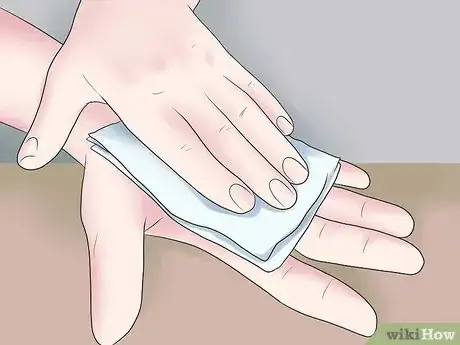
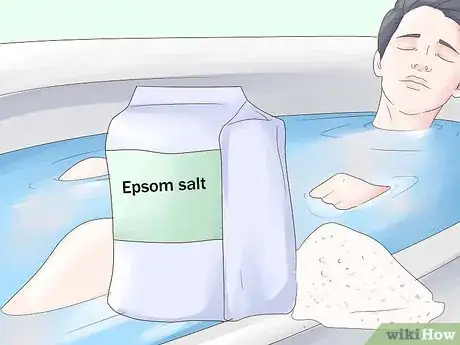
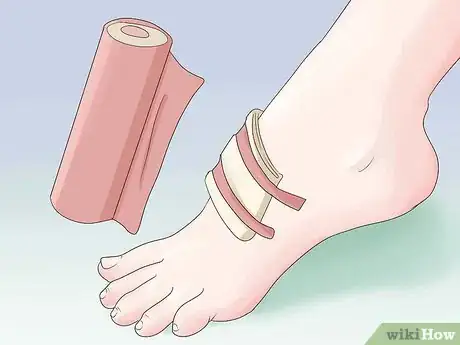
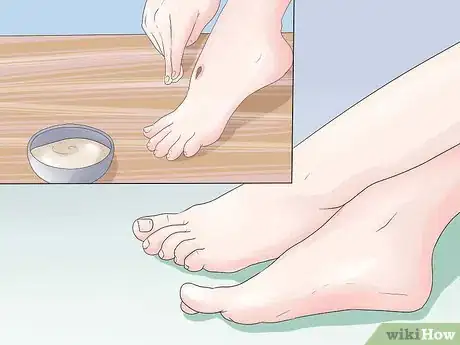
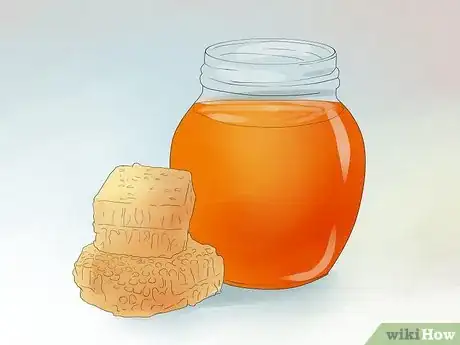
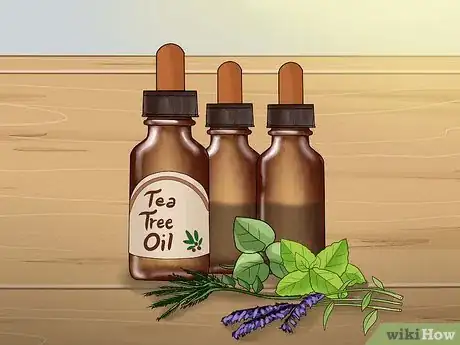
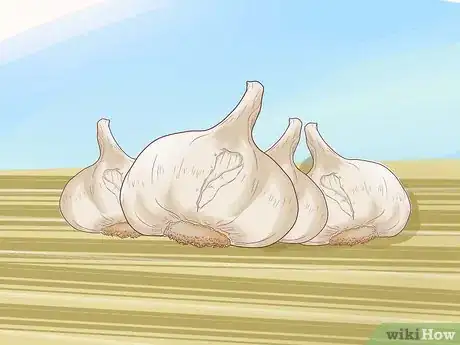
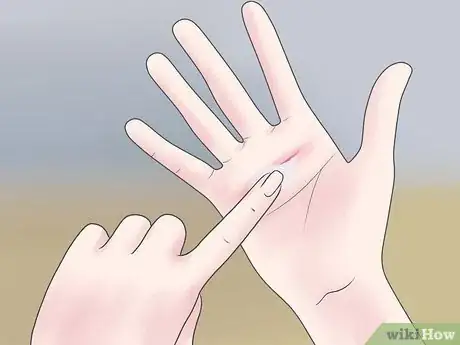
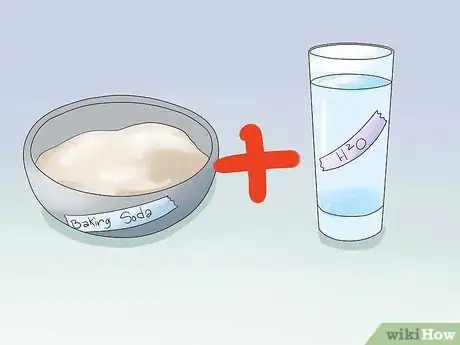
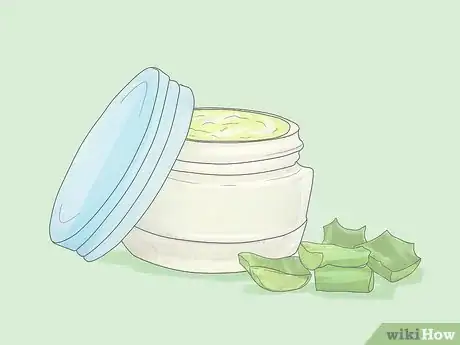
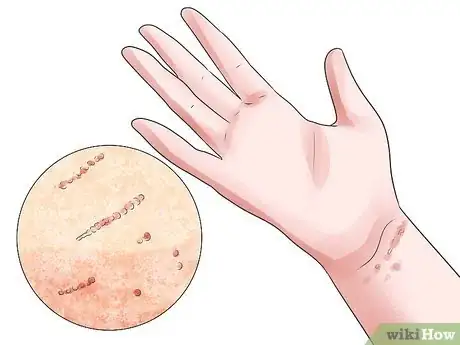
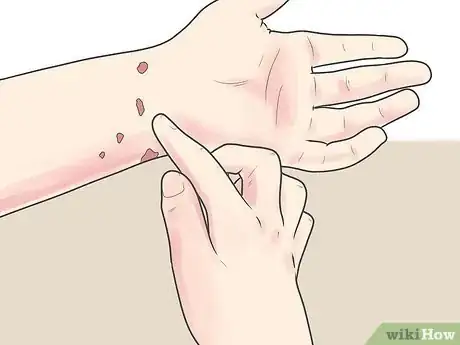
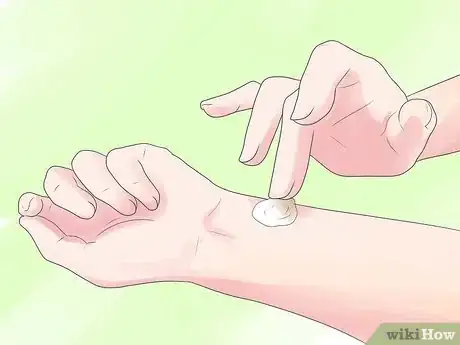



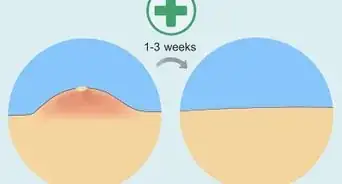
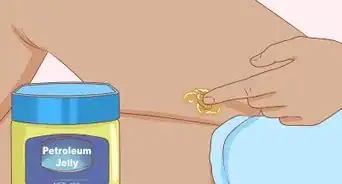
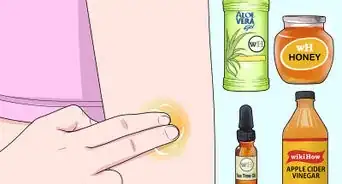
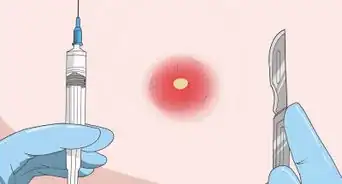
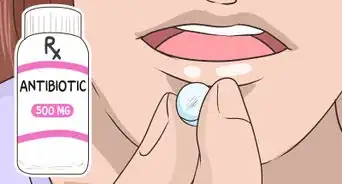
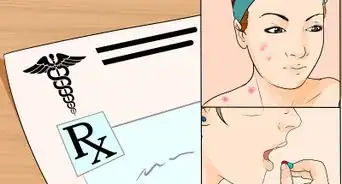


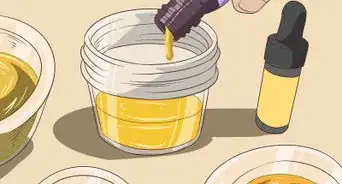
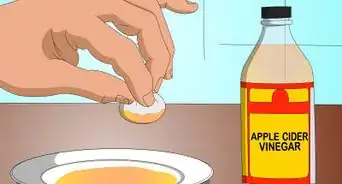

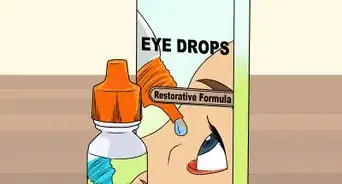












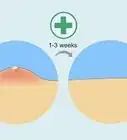
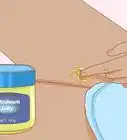



































Medical Disclaimer
The content of this article is not intended to be a substitute for professional medical advice, examination, diagnosis, or treatment. You should always contact your doctor or other qualified healthcare professional before starting, changing, or stopping any kind of health treatment.
Read More...